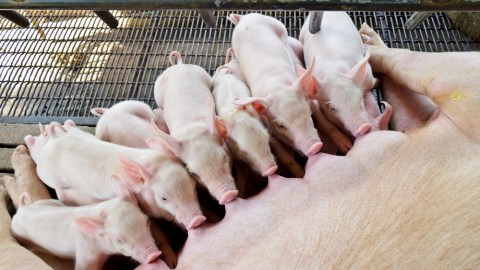What Hundreds of Studies Don’t Say About Birth Order and Personality

It is popularly believed that birth order influences personality. This is a belief held in pop culture. Social scientists have talked about the possibility and scientists have talked about it.
But if you look hard at the evidence for birth order influencing personality, the evidence is not nearly so strong as you might imagine. And in fact, really honestly, there’s evidence that two other factors have a much larger effect. And I’ll give you examples of what are problems with these studies.
There are hundreds of studies that have looked at the effect of birth order on personality. This is a variable that is easily examined. You can just check off on a survey whether you are firstborn, second born, third born. But it turns out the evidence is not very good and there’s several reasons for this.
Let me just give you two big reasons why birth order might not have the effects that we believe it does.
The first reason is a really big one which is it depends on who you ask. It turns out that the studies that show the largest effect of birth order on personalities say that older kids are bossier, younger kids are more rebellious, much of that evidence comes from surveying family members. And it may not come as a surprise that a parent who has watched two children grow up might form the opinion that the younger child is less mature than the older child because at any given moment of time, the older child is older than the younger child. And so one big factor is, who do you ask the question of?
When you ask those questions of people who are outside the family, you do not see nearly such large effects. And in studies in which birth order and personality are investigated by people outside the family, the effects are much smaller. And so this perhaps doesn’t come as surprise, I mean, you know, we live our lives, we leave the home, we have our work and our friends and so on and then we get together for our family dinner and boom… we’re immediately reduced to what were like when we were 12 years old. And we’re arguing with our older sibling again. All those things come back when we are together and all those things can also creep into studies of birth order.
The second thing that comes into studies of birth order is the size of the family. Now, I’m going to make a pretty obvious statement. Any family with children can have a firstborn child, but only large families have a fourth born child or a fifth born child. Right? And so when you study birth order, if you’re comparing the firstborn child with the third, fourth or fifth born child, then you have to control for family size. And another big factor in birth order studies is that differences between firstborn and later born children, those differences go away when you control for family size.
And so it seems like there’s something about family size that influences personality. Maybe it’s socioeconomic status, maybe people from large families don’t have as much in the way of resources and so they become more rebellious, more prone to trying new ideas, new things.
And so these two caveats in the studies get in the way of really understand how birth order influences personality, if at all. And it turns out that in fact, family size is a much larger determinate of personality than the order of one’s birth.
In Their Own Words is recorded in Big Think’s studio.
Image courtesy of Shutterstock




